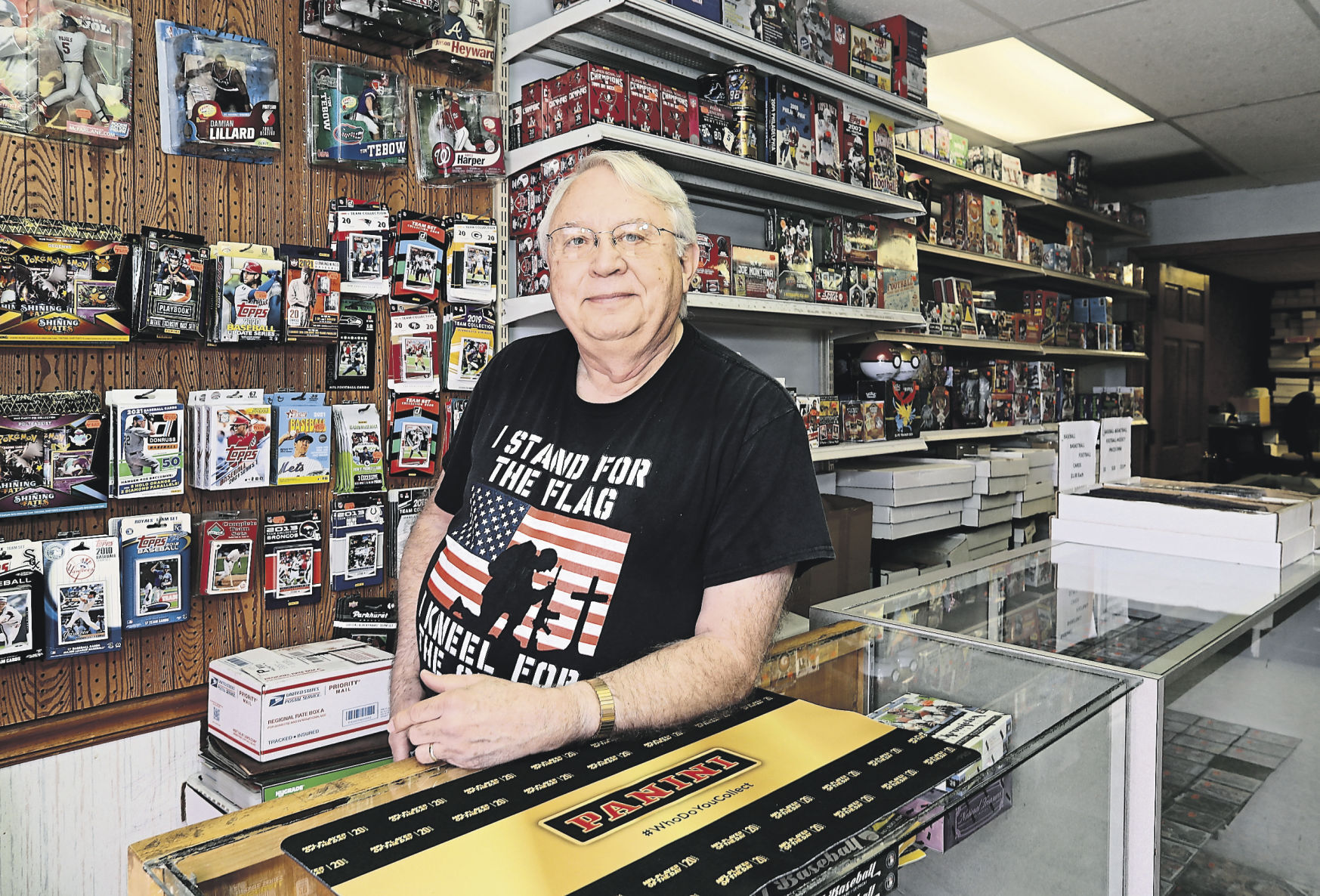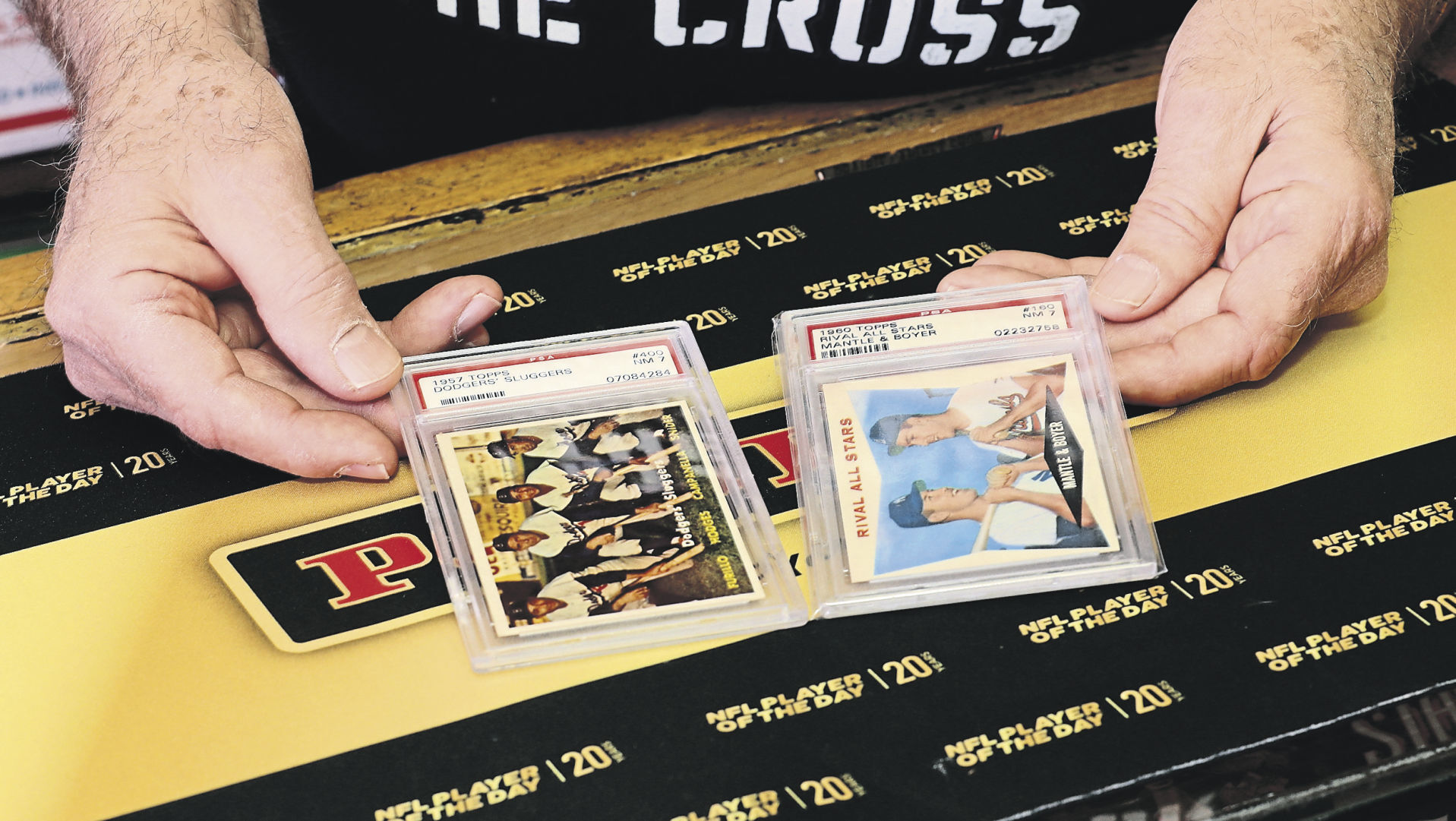David Orr has been selling collectible sports cards in Dubuque since 1990, but he has never seen a year like the past one.
“I’ve had a storefront for
30 years,” Orr said. “Usually, the (sports card industry) is like a roller coaster.”
Interest in the hobby usually rises and falls, and prices increase and wane, Orr said.
“This (past) year was more like a rocket ship going right up,” he said.
Business has been booming in the sports card industry.
The auction website eBay reported in February that U.S. sales of trading cards grew 142% from 2019 to 2020, and it had sold 4 million more cards in 2020 than in the previous year.
Orr, who owns Tri-State Baseball Cards & Shows in Dubuque, attributes the rising fortunes to habits influenced by the coronavirus pandemic.
“People needed something to do,” he said. “They had nowhere to go so they had extra money to spend and they got reacquainted with the hobby. It just increased interest.”
Orr wasn’t sure how the pandemic would affect his business during the early spring of 2020, when COVID-19-related restrictions shut down large swaths of the economy.
“When we had to go through the shutdown, I was thinking it could be a long haul,” he said. “I was not sure what was going to happen.”
Orr continued to sell cards, relying on phone orders, curbside sales and eBay and other internet sales.
“Sales were pretty much normal, and then in April (2020), everything just blew up — eBay and everything else,” he said.
Orr began selling three to four times as many cards through eBay.
“About 75% of it was going out to California,” he said.
Orr’s business rode another big wave of sales during the summer of 2020, an increase he attributes to people investing some of their stimulus funds on collectibles.
“Investors start putting (their money) into tangible things — gold, silver, comic books, baseball cards, coins, anything tangible that was collectible — people just wanted it,” Orr said.
Certain cards have broken sales records since the pandemic began. A rare card of baseball legend Mickey Mantle sold for a record $5.2 million in January through a nationwide trading card marketplace. An autographed rookie card of National Basketball Association player Luka Doncic sold for $4.6 million in February and an autographed 2009 rookie card for Major League Baseball star Mike Trout sold for $3.9 million during an online auction in August 2020.
The sports card market is estimated to be worth approximately $5 billion.
Card collectors range from investors to hobbyists.
Tom Langas, of Dubuque, has been collecting football cards since he was a kid.
“It keeps you busy and keeps you occupied — it gives you something to do,” Langas said.
Langas said he relies on the internet to purchase cards that help him complete sets.
“They would be hard to get a hold of without the internet,” he said. “With the internet, you can go (card shopping) from East Coast to West Coast.”
According to eBay’s report, sales grew among cards of all sports. Sales of soccer trading cards grew by 1,586% from 2019 to 2020, followed by basketball cards (up 373%), hockey (258%), football (168%) and baseball (73%).
“The popularity of basketball cards surprises me,” Orr said. “We can’t get (basketball cards) and we can’t keep (basketball cards) on the shelves.”
Orr thinks basketball interest was stoked by “The Last Dance,” a 10-part ESPN television documentary about former NBA star Michael Jordan that aired during the spring of 2020, when most live sporting events had gone dormant because of the pandemic.
Matthew Garrett, of Dubuque, has been collecting cards since he was a kid.
“Baseball has always been my primary focus, but I have dabbled in football, basketball, hockey, and WWE off and on throughout the years,” Garrett said.
Garrett said he thinks the Jordan documentary and renewed interest in retired star players kick-started much of the current card-sales boom.
“What is happening now is unprecedented in my experience,” he said. “Retail outlets are having to enforce minimum purchase regulations and have security present in the cards section.”
Garrett said the boom has impacted his collecting.
“I am not going to wait in long lines for product and nor will I pay marked-up prices on retail product on the secondary market,” he said. “So, I am collecting fewer new products.”
Based on his 30-year experience with the ebbs and flows of the business, Orr said he doesn’t expect the pandemic-driven, dramatic sales increases to last.
“It’s already beginning to taper,” he said. “It will level back down.”
However, he sees signs that a new generation is prepared to fuel steady future growth in the hobby.
Orr said another interesting aspect of the current card boom is the age of many collectors.
“We have more kids collecting — we still get some middle-aged people, but there has just been an onslaught of kids — which is great,” he said.




